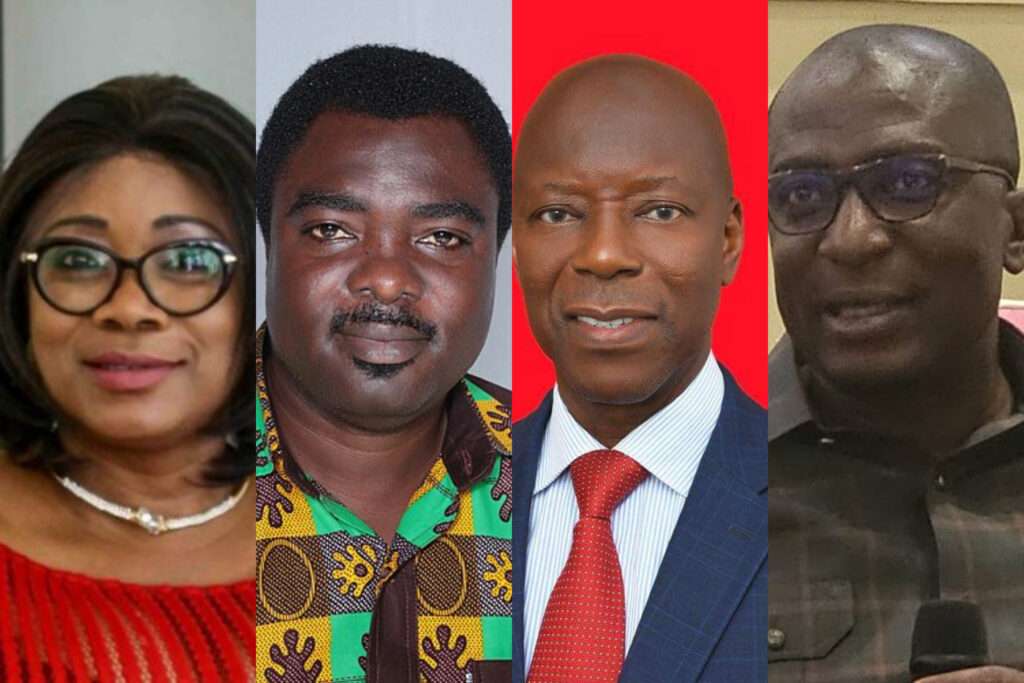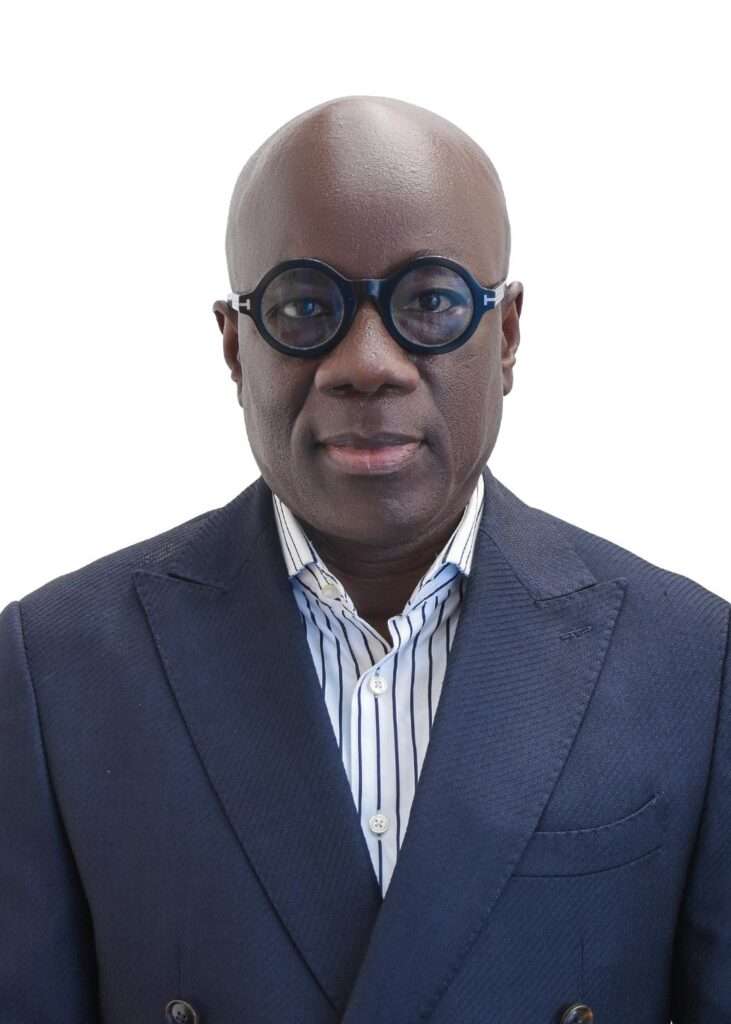The political landscape in Ghana is experiencing significant upheaval, particularly concerning the composition of Parliament and the disqualification of candidates in crucial constituencies.
Recent events surrounding the court ruling, electoral commission decisions, and the hung Parliament have sparked a fierce response from both the ruling New Patriotic Party (NPP) and the opposition National Democratic Congress (NDC).
The NDC has vowed to challenge these developments through legal avenues and public advocacy, arguing that they threaten the democratic principles the country upholds.
Hung Parliament and the Ruling’s Impact

As Ghana prepares for its general elections in December, a recent ruling has altered the delicate balance in Parliament.
Before the ruling, the NPP had a slight upper hand in Ghana’s hung Parliament, with 138 MPs on the majority side, supported by an independent member of Parliament, Andrew Asiamah Amoako. The opposition NDC held 137 seats.
Following the ruling, the NPP’s majority has been diminished. The opposition NDC now holds 136 seats, while the NPP is left with 135.
The legislators affected by this ruling include NDC’s Peter Yaw Kwakye Ackah of the Amenfi Central Constituency in the Western Region and NPP MPs Kwadjo Asante for Suhum in the Eastern Region Andrew Asiamah Amoako and Cynthia Mamle Morrison of Agona West in the Ashanti Region.
As the speaker remarked; A vertical 971g of the 1992 Constitution was only to apply to a future Parliament. If that were not the case, there would have been no need for it to exist since the MPs in question would have completed the term of the current Parliament.
The Speaker also referenced a previous incident involving the former Speaker of Parliament, Professor Mike Ocquaye, who expelled a former MP after the MP declared his intention to go independent.
However, the current Speaker stated that this precedent was not binding on him or any other Speaker, adding to the complexity of the ruling’s implications.
However, the Executive Director of the African Centre for Parliamentary Affairs (ACEPA), Dr Rasheed Draman, emphasized the importance of clarity and consistency in interpreting the constitutional provisions regarding Members of Parliament (MPs) who declare their intention to go independent.
His statement touched on the potential ambiguity in the current constitution and the need for a comprehensive constitutional review to address such issues.
Dr Draman’s remarks came in response to a discussion on the constitutional provisions that determine whether a member of parliament who leaves their party can retain their seat in the legislative house.
This reflected the uncertainty surrounding certain clauses of the constitution, particularly when it comes to the status of MPs who contest elections on tickets different from their original party affiliations. The “gray area” that [someone] mentioned refers to the lack of clarity on whether such members should be treated as independent MPs or as having vacated their seats in Parliament.
“Once people declare their intention to go independent or to contest on a ticket other than the party that they represent in parliament, it presupposes that the relationship is already frosty. It presupposes that the relationship is broken.”
Dr Rasheed Draman Executive Director of the African Centre for Parliamentary Affairs (ACEPA)
He emphasized that while there might be legal complexities, it is evident that such decisions reflect a fractured relationship between the MP and their party.
” Yes it might be gray, it just simply says that they no longer belong to the party for which they are members in the house.”
Dr Rasheed Draman Executive Director of the African Centre for Parliamentary Affairs (ACEPA)
The Need for a Constitutional Review

He argued that the ambiguity surrounding the status of MPs who leave their party needs to be addressed to ensure consistent rulings in the future.
“Maybe that might be one area that will need to be further clarified and if we ever have a constitutional review, maybe this is one important candidate for review.”
Dr Rasheed Draman Executive Director of the African Centre for Parliamentary Affairs (ACEPA)
He emphasized the importance of having clear provisions in place, particularly in situations where speakers of parliament must rule on the status of MPs who leave their party.
“It’s a very serious matter to declare people’s seats vacant. And we need to make sure all shreds of ambiguity are taken away so that when speakers rule, at least they are riding on provisions that are as clear as they can be.”
Dr Rasheed Draman Executive Director of the African Centre for Parliamentary Affairs (ACEPA)
Precedents in Parliamentary Decisions
Dr Rasheed Draman also warned of the dangers of setting precedents in parliament without considering the long-term consequences.
He advised political parties and MPs to be cautious when making decisions that could affect the interpretation of constitutional provisions in the future.
“Minorities change, we should be careful when we are setting precedence. Because It might be convenient for you today, but you might wake up tomorrow, and you are asked to swallow that same pill, and it might be much bitter than, maybe when others were swallowing it.”
Dr Rasheed Draman Executive Director of the African Centre for Parliamentary Affairs (ACEPA)
Dr Draman’s point here was that parliamentary rulings today could come back to affect those who made them when the political landscape shifts.
He underscored the importance of consistency and fairness in decision-making.
Reflection on the Speaker’s Role
Dr Draman acknowledged the role of the Speaker of Parliament in interpreting and enforcing constitutional provisions. While referring to the current speaker’s ruling.
“Yes, the speaker was not riding on precedent. Very much, I mean, he was saying the ruling of Speaker Ocquaye doesn’t tie his hands.”
Dr Rasheed Draman Executive Director of the African Centre for Parliamentary Affairs (ACEPA)
He expressed the sentiment that the public might expect the same outcome today as they did in previous rulings.
“If you listen to the sentiments of Ghanaians, I think people were saying what happened 4 years ago, and if we are operating with the same constitution, must happen today.”
Dr Rasheed Draman Executive Director of the African Centre for Parliamentary Affairs (ACEPA)
Differentiating Between Parliaments
Dr Draman acknowledged that the current parliament is different from its predecessor, and political dynamics have shifted.
He highlighted that decisions made by the ruling party now could be detrimental to their interests.
“The 7th parliament is not the 8th parliament. If the party writes to the speaker now, they’ll be committing suicide, and I believe that that is not something that the NPP wants to do at this time.”
Dr Rasheed Draman Executive Director of the African Centre for Parliamentary Affairs (ACEPA)
Here, Dr Draman stressed that decisions made in the past might not be appropriate for the current political environment, implying that the ruling party would need to carefully consider the ramifications of pushing for certain actions.
Upholding the Rule of Law
In conclusion, he suggested that the courts should step in to resolve the matter, ensuring that decisions are made based on legal principles rather than political motivations.
“We must uphold the rule of law. We must go by the constitution. And, now let then now courts come in and let them tell us whether maybe the right honorable speaker heard or somebody’s heard.”
Dr Rasheed Draman Executive Director of the African Centre for Parliamentary Affairs (ACEPA)
Dr Draman’s comments highlighted the importance of clear constitutional provisions and the need for fairness and consistency in parliamentary rulings.
He urged all stakeholders to prioritize the rule of law and to seek judicial clarification where necessary, to avoid further ambiguities in future cases.
READ ALSO; Former One Direction Member, Liam Payne, Dies at 31




















